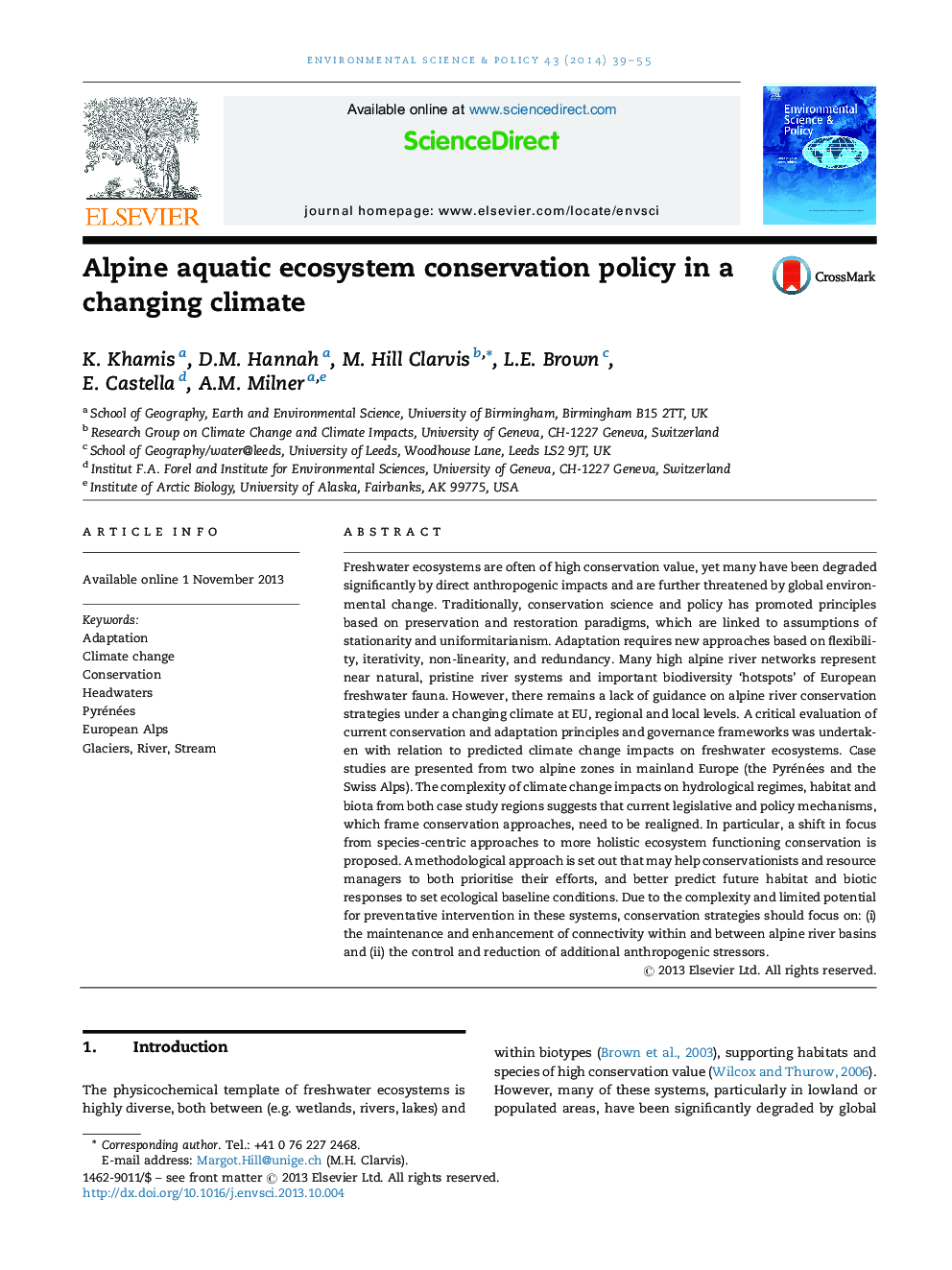| کد مقاله | کد نشریه | سال انتشار | مقاله انگلیسی | نسخه تمام متن |
|---|---|---|---|---|
| 1053547 | 1485063 | 2014 | 17 صفحه PDF | دانلود رایگان |
• We assess current conservation and climate change adaptation principles in the context of alpine aquatic environments.
• Case studies from the European Alps and French Pyrénées suggest conservation policy requires revision in the context of socio-environmental change.
• We suggest a refocus of conservation efforts on ecosystem functioning under an area based framework.
• Methodological approaches to prioritise conservation efforts and predict habitat-biotic responses are presented.
• Future conservation strategies should focus on control of additional, non-climatic stressors.
Freshwater ecosystems are often of high conservation value, yet many have been degraded significantly by direct anthropogenic impacts and are further threatened by global environmental change. Traditionally, conservation science and policy has promoted principles based on preservation and restoration paradigms, which are linked to assumptions of stationarity and uniformitarianism. Adaptation requires new approaches based on flexibility, iterativity, non-linearity, and redundancy. Many high alpine river networks represent near natural, pristine river systems and important biodiversity ‘hotspots’ of European freshwater fauna. However, there remains a lack of guidance on alpine river conservation strategies under a changing climate at EU, regional and local levels. A critical evaluation of current conservation and adaptation principles and governance frameworks was undertaken with relation to predicted climate change impacts on freshwater ecosystems. Case studies are presented from two alpine zones in mainland Europe (the Pyrénées and the Swiss Alps). The complexity of climate change impacts on hydrological regimes, habitat and biota from both case study regions suggests that current legislative and policy mechanisms, which frame conservation approaches, need to be realigned. In particular, a shift in focus from species-centric approaches to more holistic ecosystem functioning conservation is proposed. A methodological approach is set out that may help conservationists and resource managers to both prioritise their efforts, and better predict future habitat and biotic responses to set ecological baseline conditions. Due to the complexity and limited potential for preventative intervention in these systems, conservation strategies should focus on: (i) the maintenance and enhancement of connectivity within and between alpine river basins and (ii) the control and reduction of additional anthropogenic stressors.
Journal: Environmental Science & Policy - Volume 43, November 2014, Pages 39–55
